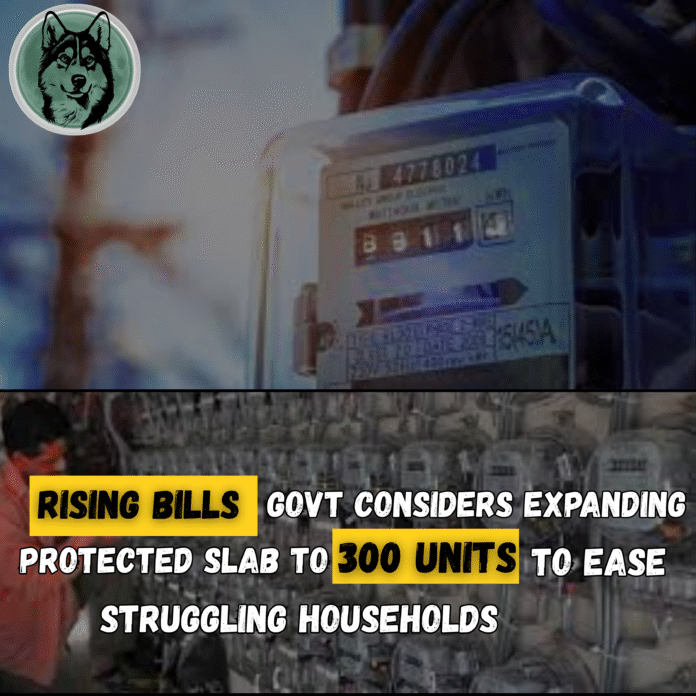Move aims to protect low and middle-income households from sudden tariff hikes amid growing public concern over inflated electricity bills.
ISLAMABAD – August 8, 2025:
Amid mounting public criticism and concerns raised by lawmakers, the federal government is actively considering a major revision to Pakistan’s electricity tariff structure by raising the protected consumer slab limit from 200 to 300 units. The change could provide significant financial relief to millions of households struggling to pay soaring electricity bills.
The proposal was discussed after members of the National Assembly informed Prime Minister Shehbaz Sharif that families consuming just a few units above the current protected threshold of 200 units were being penalized with disproportionately high charges. Lawmakers cited examples of consumers being billed up to Rs. 5,000 extra for crossing the 200-unit mark by a single unit — triggering public outrage and widespread debate over fairness in the billing system.
They argued that such abrupt tariff jumps for marginal overuse were deeply unfair, particularly when inflation is already hitting household budgets hard. “It’s not just a financial issue — it’s a matter of justice and economic dignity,” said one MNA during the briefing.
In response, Prime Minister Shehbaz Sharif instructed the Ministry of Energy to review the structure of electricity slabs and explore more equitable solutions. A high-level committee comprising officials from the power sector, the energy ministry, and finance experts is now being constituted to assess the existing protected and non-protected categories.
The committee will analyze consumption data, billing patterns, and the broader socio-economic impact of tariff rates. Its mandate includes developing recommendations for a new threshold that aligns with both public affordability and fiscal responsibility.
If approved, the revised structure would mean that only consumers exceeding 300 units per month would fall into the higher, non-protected billing category — a move that could potentially shield a larger portion of low- and middle-income households from sudden spikes in monthly bills.
Currently, the protected category covers domestic electricity users who consume up to 200 units per month, offering them lower per-unit rates and other subsidies. Consumers who exceed that limit, even by a single unit, are instantly shifted into a more expensive billing slab — losing all subsidy benefits and incurring a much higher bill.
This proposed reform reflects a growing realization within the government that current tariff slabs disproportionately penalize small households, especially as Pakistan continues to navigate a period of high fuel prices, rising power generation costs, and pressure from international lenders to rationalize subsidies.
Energy experts have welcomed the proposal, calling it a “necessary correction” in the pricing model. “Tariff design should reflect actual consumption behavior and protect vulnerable users, not trap them in a penalty cycle for minor increases,” said an independent power sector analyst.
The potential change comes at a time when public dissatisfaction over high electricity bills has been growing. Social media has seen a surge in complaints, with consumers sharing screenshots of steep charges for minimal increases in usage, and demanding immediate action from authorities.
The government, while acknowledging public concerns, has also been balancing the demands of energy sector reforms, many of which are tied to international loan agreements and require careful financial planning. Officials stress that any change in the protected limit would have to be offset elsewhere, possibly through targeted subsidies or improved billing efficiency.
The Ministry of Energy is expected to finalize recommendations within the coming weeks, and a formal announcement could follow shortly after cabinet approval.
For now, millions of consumers wait anxiously, hoping that the proposed adjustment becomes a reality — one that may finally offer them relief from unjust billing and a fairer, more balanced power pricing system.






















